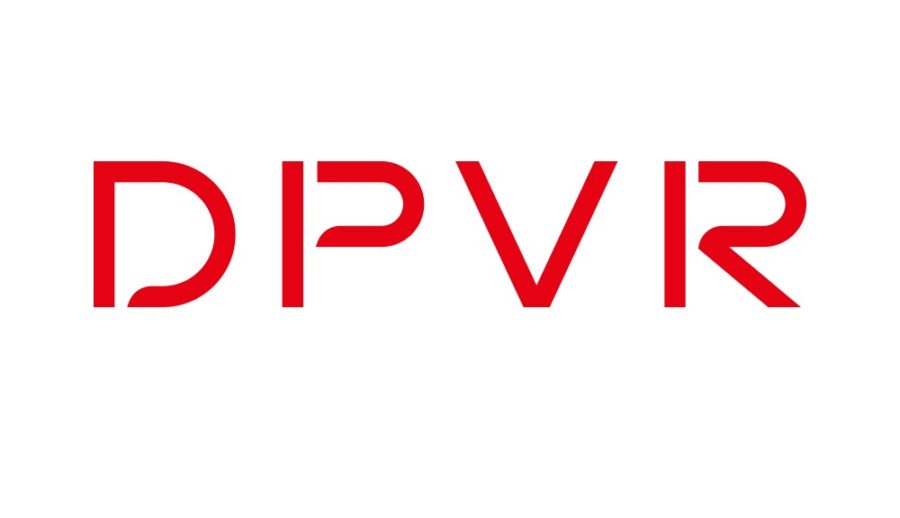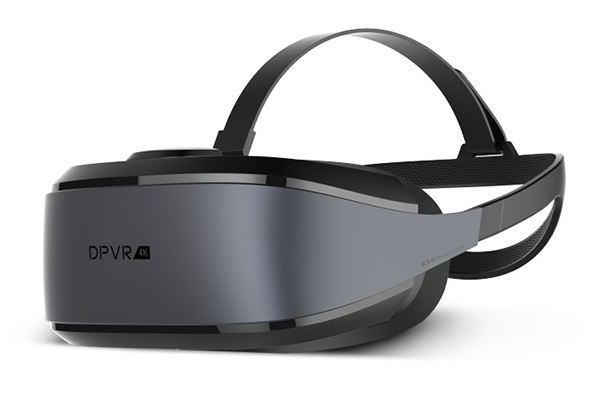
May 11, 2022 – DPVR, a Shanghai-based company specializing in virtual reality (VR) device design and manufacturing, has recently posted a teaser announcement of a new product on its website. The announcement, which translates to “coming in spring”, was posted in mid-April, and encourages readers to get excited for new VR products from the company.

DPVR’s current VR headset offering consists of a modular design that can be customized to suit varying hardware and software requirements and is primarily aimed at business and enterprise applications. The company has made several new product and partnership announcements over the last 12 months, with its most recent VR headset being its P1 Ultra 4K, which the company unveiled in August 2021.
We reached out to DPVR to comment on the recent post, to which a spokesperson stated that the company will be announcing more on the project, which it referred to as “E4 Pegasus,” in the coming weeks.
Based on the image shared in its post though, as well as the company’s existing range of E3 tethered PC VR devices, it appears that DPVR therefore does have another VR headset lined up, with a potential shift away from its enterprise approach in the last few years, and instead targeting more of a consumer and VR gaming audience base.
This is based off of the few pieces of information that DPVR was able to confirm to us, one such piece of information being that the device will feature a lightweight flip-up design that will allow users to switch from the virtual to real world almost instantaneously, essentially removing the requirement for any passthrough functionality. Whether something like passthrough would still be included is yet to be seen though. As with DPVR’s E3 range of headsets, the new device will also be tethered to a PC. This means no battery, which could therefore greatly reduce the weight. Reducing the weight of headworn VR devices is crucial to helping improve comfort and extending the length of play sessions.

DPVR was also able to confirm that the device will feature an RGB light on its front panel. RGB lighting (Red, Green and Blue) is something that is commonplace in the PC gaming world, with computer memory (RAM), motherboards, cooling fans, mouses and keyboards all being fully customizable in order to create exciting lighting effects and enhance the aesthetics of a desktop setup. The inclusion of RGB lights on a VR device could therefore be a nod to gamers by DPVR to a target more of a VR gamer audience.
Additionally, DPVR’s spokesperson stated that the device will apparently feature “a new tracking system that will make it more suited for first person experiences.” This could again be an effort by the company to entice a gaming crowd, hinting at enhanced functionality for first-person shooter (FPS) VR games.
Finally, the most exciting piece of information that DPVR confirmed was that the device will be compatible with SteamVR. If this is the case, then this would mark yet another Chinese manufacturer of VR devices attempting to break into western markets by offering a SteamVR compatible device. Plus, if DPVR really is wanting to cater to professional gamers with the E4 Pegasus, then the launch of such a device could potentially open up the possibility of future partnerships with leading VR gaming studios as part of the company’s strategy as well.
No further details have been provided on E4 Pegasus by DPVR, but as noted, it seems that the company will soon be announcing more information on the product. Whether that will include any pricing information is still to be confirmed, but based on DPVR’s previous tethered device offerings, the most expensive of its E3 devices—the E3 4K GC, which features 6DoF and a 3840 x 2160 resolution—costs USD $498. If the E4 Pegasus is in a similar price range, this would make it cheaper than many other PC VR devices on the market, such as the HP Reverb G2, Valve Index and HTC Vive Focus. This could potentially provide a lower-priced solution for tethered PC VR gaming.
For more information on DPVR and its virtual reality hardware and software solutions, please visit the company’s website.
Image credit: DPVR
About the author
Sam is the Founder and Managing Editor of Auganix. With a background in research and report writing, he has been covering XR industry news for the past seven years.
